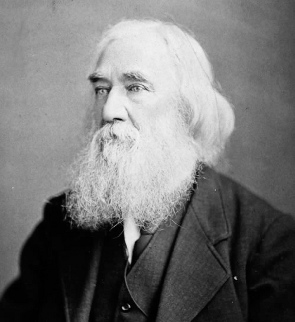spooner FAQ
What is spooner?
spooner is a utility that allows authors of scientific publications to make their work available to the general public without violating publishing agreements (which often prohibit authors from posting published articles on the Internet).
The idea is simple: you upload your publications to spooner, and we create a special (encrypted) link to each one. You can then post the link anywhere on your web page (or anywhere else, for that matter). When a visitor clicks on the link, a small box will pop up, allowing them to enter their e-mail address. spooner will then e-mail the file to the address specified. This functions essentially the same way as a visitor to your web site e-mailing you and asking you to send them a copy of a paper, but (1) it's a lot faster, and (2) you don't have to spend all your time fielding e-mails.
Why can't I just let peopele download my publications?
Depending on the journal, you may be able to. Many journals allow for "open access" (a policy designed to allow for the widest dissemination of scholarly works possible) or "self archiving" (e.g., posting a copy of a paper on one's personal web site), but others explicitly prohibit authors from making their work publicly available on a web server. A fairly comprehensive list of journals and their policies is available from SHERPA/RoMEO. If you're unsure about a particular journal's policies, you should seek out additional information from the publisher's website.
How do journals prohibit self archiving?
While open access policies are becoming more popular, a quick review of the SHERPA/RoMEO data shows that they are by no means ubiquitious. Additionally, even journal policies that allow for some type of self archiving often include crippling restrictions on how scholarly works can be distributed. For example, many journals allow pre-print versions of papers - draft versions from the author without changes suggested by referees - to be self archived, but prohibit authors from making post-print versions (with suggested changes) publicly available. Since reviewer recommendations are a critical part of the peer review and publishing process, such restrictions can result in multiple versions of the same paper circulating, some of which do not include important revisions.
Another common practice is the "embargo" on self archiving. For example, a journal may allow authors to make published articles publicly available, but only after a specified period of time (e.g., six months, a year) has passed. Such policies are unfortunate, as the pace of scientific research has become increasingly fast. It is important for scholars, professionals, and the lay public to have timely access to published articles. It is quite common for the general press to mention a particular study shortly before or after it has been published in a peer-reviewed journal. Those who wish to gain a more complete understanding of the research in question are, in these circumstances, prevented from doing so by embargos. Embargos are therefore particularly problematic due to the often dubious quality of press reports of scientific research and scientific journalism in general.
Is there a limit to the number of files I can have?
Nope! However, at present you can only use PDFs, and each file should be 8MB or less to ensure successful e-mail delivery.
What about privacy?
What do I do with the e-mail addresses people provide? Nothing. Although spooner logs user activity for security purposes, no personal information will ever be sold, donated, etc., to anyone. The only e-mail people will get is the one with your paper enclosed. I will only contact account holders if their account needs attention. For more information, check out the TOS.
Why is it called spooner?
The program/service is named after the 19th Century abolitionist and anarchist legal scholar Lysander Spooner. You can find out more about him here.
Spooner is known not only for his scholarship, but also for his attempt to start a business that would compete with the United States Postal Service (USPS) - the American Letter Mail Company (ALMC). A legal battle ensued, and Spooner was eventually forced to close down the ALMC, despite the company's success and ability to deliver mail at rates lower than those offered by the USPS.
So that's the connection: mail.
Also, studies consistently show that web services named after obscure 19th Century abolitionists garner more use and recognition than services with less fortunate naming schemes.
Who's in charge here?
spooner is developed and maintained by me, Sean Rife. I'm an Assistant Professor of psychology at Murray State University in Murray, KY USA. My research focuses on the role of technology in personal relationships.
How can I help?
Gratitude/recognition links are always appreciated, but not required. If you want to make a donation to help me pay my hosting bills, click here, (Don't worry! It goes directly to my hosting provider - not my beer/cigar fund.)
However, I should emphaize that I created spooner to provide the scientific community with a way of distributing knowledge, which I like. So you should in no way feel obligated to support this endeavor, even if you choose to use it.

Version History
- v0.01
- First alpha version, developed for internal use. Supported only remotely-hosted documents.
- v0.10
- Second alpha version. Added ability to upload and store documents, including account management system.
- v0.15
- First publicly available version.
- v0.25
- Bug fixes.

